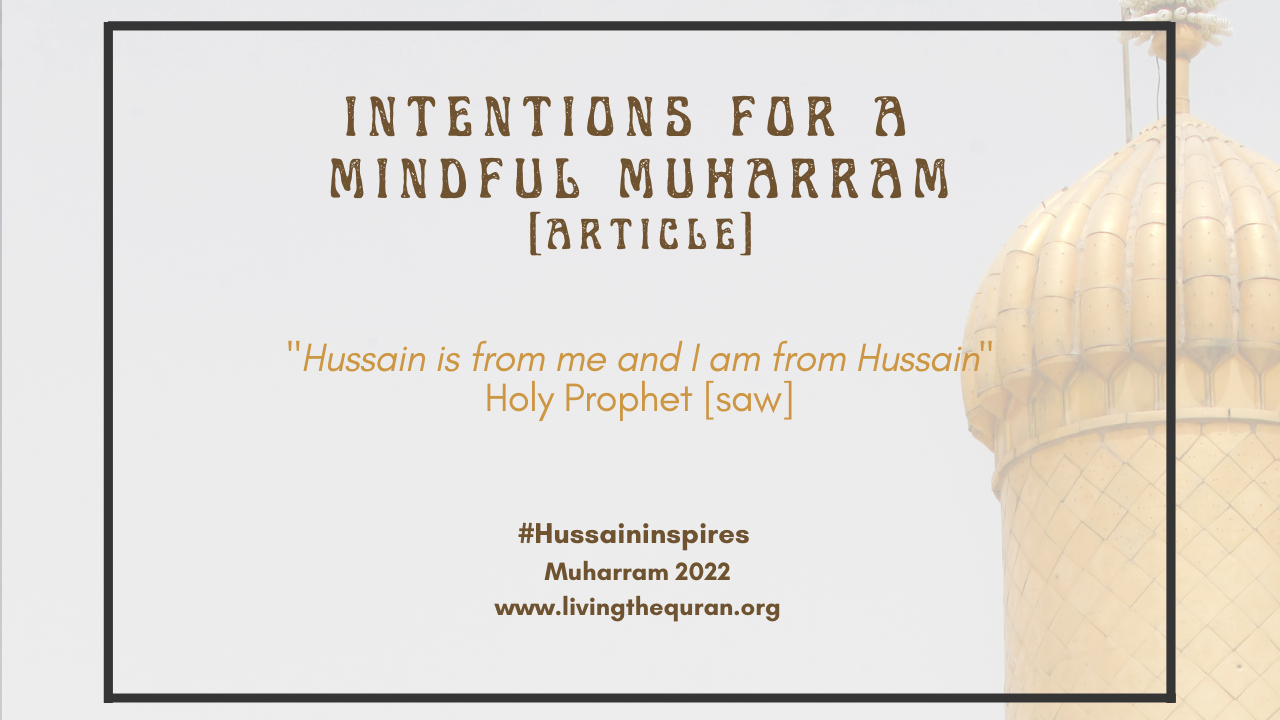Anticipating the month of Ramadan [2:185]

The month of Ramadan is that in which the Quran was revealed, as guidance to mankind and with clear proofs of the guidance and the Criterion
[Holy Quran, Sūratul Baqarah, 2:185]
As we anticipate the arrival of the blessed month of Ramadan, we may be filled with a mixture of emotions. While we expect ourselves to be full of excitement, the reality of modern life is that for many of us, the month will arrive sooner than we are ready: there will be lists of chores still to be done and projects not yet completed.
And so, let us remind ourselves that the coming month is an invitation to pause, to slow down to turn inwards, to connect to the Divine and focus on what really matters. That we might consider doing this, even though our inboxes are full, projects not yet complete and the pantry not quite stocked up.
Holy prophet (s) has said: O People! The month of Allah (Ramadan) has come with its mercies, blessings and forgiveness. Allah has decreed this month the best of all months. This ...
Intentions for a Mindful Muharram

Alhamdullilah, as the moon for Muharram 1444 is sighted all over the world, we are blessed to witness another month of Muharram. Many of us will be attending lectures and sessions online and in person, wanting to get as much benefit from these blessed moments as possible.
As we begin this period, let us spend a few moments to become mindful of the purpose of these gatherings so that these moments bring us maximum value and baraka. Let us set our intentions to show up as our best selves for the Holy Prophet (saw) reminded us that the basis of any deed is in the intention with which we do it.
The primary purpose of these gatherings, as we all know, is to commemorate and remember the suffering and the sacrifices of the family of the Prophet (SAW) when they stood up to injustice and tyranny on the plains of Karbala in the year 680 AD and 61AH.
The house of Fatima, which was slaughtered on the Day of Ashura, 61 years after the Hijrat of the Holy Prophet (as), is a very generous househo...
Muharram 1442 August 2020- Lecture :9

Salaams Friends
This year the lecture series is called
Practice and Pursuit of Ihsan
The videos can be found on YouTube channel LivingtheQuran
Muharram 1442 August 2020- Lecture :8

Salaams Friends
This year the lecture series is called
Practice and Pursuit of Ihsan
The videos can be found on YouTube channel LivingtheQuran
Muharram 1442 August 2020- Lecture :7

Salaams Friends
This year the lecture series is called
Practice and Pursuit of Ihsan
The videos can be found on YouTube channel LivingtheQuran
Muharram 1442 August 2020- Lecture :6

Salaams Friends
This year the lecture series is called
Practice and Pursuit of Ihsan
The videos can be found on YouTube channel LivingtheQuran
Muharram 1442 August 2020- Lecture :5

Salaams Friends
This year the lecture series is called
Practice and Pursuit of Ihsan
The videos can be found on YouTube channel LivingtheQuran
Muharram 1442 August 2020- Lecture :4

Salaams Friends
This year the lecture series is called
Practice and Pursuit of Ihsan
The videos can be found on YouTube channel LivingtheQuran
Muharram 1442 August 2020- Lecture :3

Salaams Friends
This year the lecture series is called
Practice and Pursuit of Ihsan
The videos can be found on YouTube channel LivingtheQuran
https://youtu.be/CVVVan2OiGI
Muharram 1442 August 2020- Lecture :2

Salaams Friends
This year the lecture series is called
Practice and Pursuit of Ihsan
The videos can be found on YouTube channel LivingtheQuran
https://youtu.be/pHQ8k4Rr46Y



